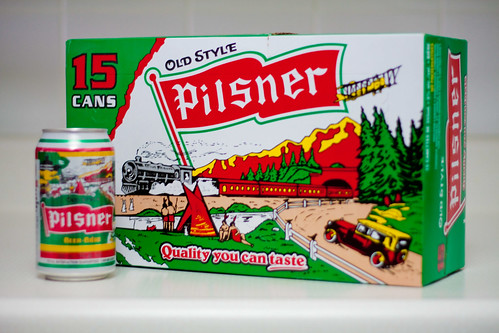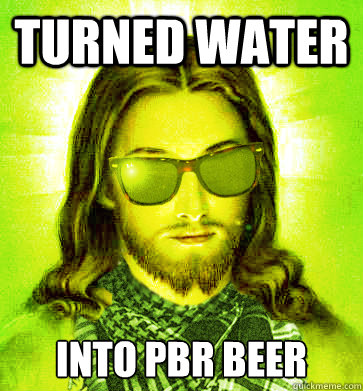This has been the week where we commemorate the wedding at Cana, the first of the miracles of Christ. And the funny thing is, I'm going to reproduce it here, so you can all read it, and that's funny because you all already know it. You could almost recite it off by heart, but you know what? The devil's in the details. And it's the details of this story that are so powerful. You all know the big picture (water = wine), but do you know the deets?
The Wedding at Cana
2 On the third day there was a wedding at Cana in Galilee, and the mother of Jesus was there. 2 Jesus also was invited to the wedding with his disciples. 3 When the wine ran out, the mother of Jesus said to him, “They have no wine.” 4 And Jesus said to her, “Woman, what does this have to do with me? My hour has not yet come.” 5 His mother said to the servants, “Do whatever he tells you.”
6 Now there were six stone water jars there for the Jewish rites of purification, each holding twenty or thirty gallons.[a] 7 Jesus said to the servants, “Fill the jars with water.” And they filled them up to the brim. 8 And he said to them, “Now draw some out and take it to the master of the feast.” So they took it. 9 When the master of the feast tasted the water now become wine, and did not know where it came from (though the servants who had drawn the water knew), the master of the feast called the bridegroom 10 and said to him, “Everyone serves the good wine first, and when people have drunk freely, then the poor wine. But you have kept the good wine until now.” 11 This, the first of his signs, Jesus did at Cana in Galilee, and manifested his glory. And his disciples believed in him.
Familiar stuff, wouldn't you say? Yes, you know this story. But without some context, without some background, this passage can quickly turn into a sort of magic trick kind of deal, where Jesus turns water into wine, and everyone has a pretty good party. But why did he turn water into wine in the first place? Well, because they'd run out of wine. As in, the party guests had already consumed everything. Fun for everyone, right? It's one of those weddings. I've been to those weddings, and probably so have you.
The couple you see here on the left, their wedding was the one where before we'd even said grace, the MC came to the microphone and informed us that the wedding was completely out of pil. That's right. Cocktail hour was set to become mocktail hour, because the table from Saskatchewan had already consumed all the pilsner in the house. Now, wouldn't it be convenient if we had someone at that wedding who could turn water into to pilsner? While everyone else was busy turning pilsner into water?
 |
| The MC of that fateful wedding. Bearer of bad news |
It would have been convenient, but we probably shouldn't reduce the work of Christ to a fun holy trick that gets folks out of a bit of a jam. It's more than just party time, and Jesus is more than party God. Let's look at the detail that I want to draw your attention to, shall we?
It's the water. Or more accurately, it's where the water comes from. Check out the stone jars, and you'll get an idea of what's up. Six stone jars, used for the Jewish rites of purification, each holding twenty or thirty gallons. That's a lot of water, for a lot of purification. And there was a lot of purification in the Old Testament that was required. You forget about this a whole lot, because, as Christians, you don't get into the whole ritual purity thing. You are new Testament people, you are people who have Christ firm in your hearts, and there's not a whole lot of stuff in the New Testament about ritual purity. As well there might not be. Because we've moved past that. And why have we moved past that? Why do you not care (beyond, you know, germs and stuff) how hands are washed? Why are there not wudu stations set up in the Christian church? Why don't you care about ritual purity?
It's because of passages like this one. The water used for this water into wine business is taken from the selection that the hebrews would have been using to wash themselves, ritually, so that they may be clean. But they weren't actually 'clean'. All they were really doing was adding another layer of whitewash to the outside of the tomb, and inside was all spiders and decay. But when Jesus looks at this situation, what he does is quite remarkable. He makes more wine so that the party may continue, yes. He does in fact do that. But he takes the water away from the works that people were doing to make themselves clean. He takes the works that people would do for themselves and for God, to make themselves right with God, and removes the ability that people have to make themselves clean. And he replaces that water with wine, in effect replacing law with Gospel. That's the good news of this passage. What were the people at this wedding going to be using to ritually wash themselves with now? nothing! There was nothing to do that with. God is there in human form with them, and what does he do? He blesses them, both by providing the drinks (yay) and by removing the requirements of the law (double yay).
 This seems like small potatoes, doesn't it? I know it's a miracle, but providing wine at one wedding? Big deal. So the people at that wedding were happy and were ritually unclean. So what? Well, this is just a shadow of what is to come. Because you all know what the Old Testament folks did to get clean of their sins, right? Sacrifice. Sacrifice of animals at the altar of God at the temple in Jerusalem. They'd bring animals (the animals referred to in Leviticus), and slaughter them there, and that would make it all better. But like with everything else, it turned into a work that people could do to merit God's attention. And like with the washing, and the Sabbath day, all these things turned into how best to get God to notice us. So so much. But then, at the moment of the crucifixion of Christ, the temple curtain gets torn down. Well and good. The barrier in the Temple between God and humanity was torn down, so that people no longer had to have anything between them and God, sin included. But the temple curtain was probably put back up, and sacrifices continued, until that fateful day in which the Temple itself was knocked down, and everything of value was removed, taken to Rome, and presumably melted down to make jewellery for Caesar's wife.
This seems like small potatoes, doesn't it? I know it's a miracle, but providing wine at one wedding? Big deal. So the people at that wedding were happy and were ritually unclean. So what? Well, this is just a shadow of what is to come. Because you all know what the Old Testament folks did to get clean of their sins, right? Sacrifice. Sacrifice of animals at the altar of God at the temple in Jerusalem. They'd bring animals (the animals referred to in Leviticus), and slaughter them there, and that would make it all better. But like with everything else, it turned into a work that people could do to merit God's attention. And like with the washing, and the Sabbath day, all these things turned into how best to get God to notice us. So so much. But then, at the moment of the crucifixion of Christ, the temple curtain gets torn down. Well and good. The barrier in the Temple between God and humanity was torn down, so that people no longer had to have anything between them and God, sin included. But the temple curtain was probably put back up, and sacrifices continued, until that fateful day in which the Temple itself was knocked down, and everything of value was removed, taken to Rome, and presumably melted down to make jewellery for Caesar's wife.So what do you do, as a believer in God? Most likely, you wring your hands, and accept the burden of your sin, realizing that sacrifices themselves have to stop, and there will be no more scapegoating. Unless, unless of course you heard about the teachings of a rabbi who talked about how the sacrificial system was coming to an end. Unless you heard about someone who promised to take away sin in a way that killing a bull never could. Unless you heard about someone who had lived and died, and rose again from the dead to hammer the point home that sins were being forgiven, and people were clean before God.
This was hot, hot news. In fact, it still is. And it is such hot news because it changes the entire profile of the faith, away from what you do for God, and towards what he does for you. It's not about how you wash yourself to get free from ritual impurities, it's about how he washes you in baptism. It's not about how you sacrifice animals on your altar, it's about the sacrifice he made for you on the cross. This is hot, hot news, perhaps it always will be. And it's linked in so deeply with the changing of the water into wine. It was taking the law, turning it into gospel, taking the rules, and turning it into a blessing. Taking sacrifice and work, and turning it into wine and joy. With any and all miracles Jesus does, and this one is no exception, he makes all things new. Including, but not limited to, you.
PJ.


No comments:
Post a Comment